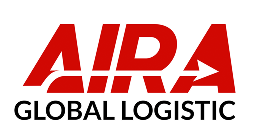Top Customs Brokerage Mistakes and How to Avoid Them
Clearing goods through customs is a complex and highly regulated process. Even small errors can lead to costly delays, penalties, or shipment seizures. Whether you’re a seasoned importer/exporter or just starting international trade, understanding common customs brokerage mistakes—and how to avoid them—can save your business time and money.
1. Incomplete or Inaccurate Documentation
The Mistake:
Incorrect invoices, missing permits, or incomplete shipping documents are among the most common causes of clearance delays.
How to Avoid It:
Work with a knowledgeable customs broker to ensure all documentation is accurate, complete, and aligned with your shipment details. Double-check commercial invoices, bills of lading, and certificates of origin before shipping.
2. Incorrect Tariff Classification (HS Codes)
The Mistake:
Misclassifying your goods under the wrong Harmonized System (HS) code can result in incorrect duties, fines, or even cargo seizures.
How to Avoid It:
Use a certified customs broker or classification specialist to determine the correct HS code. Stay updated with changes in trade regulations and classification codes.
3. Underestimating Duties and Taxes
The Mistake:
Assuming duty-free status or under-declaring value can trigger audits and penalties.
How to Avoid It:
Always declare the full, correct value of your goods and understand the applicable duties, taxes, and any preferential trade agreements you may qualify for.
4. Ignoring Country-Specific Regulations
The Mistake:
Every country has unique import/export rules. Failure to comply can lead to denied entry or fines.
How to Avoid It:
Partner with a customs broker experienced in your target markets. Research destination country regulations well in advance of shipment.
5. Poor Recordkeeping
The Mistake:
Not keeping proper import/export records can cause trouble during audits or compliance checks.
How to Avoid It:
Maintain organized records for all shipments, including customs declarations, invoices, and correspondence, for at least five years (or as required by law).
Conclusion: Let a Professional Handle It
Customs brokerage is a critical yet intricate part of international logistics. Avoiding costly mistakes starts with working alongside experienced, licensed brokers who understand the legal, logistical, and financial aspects of cross-border trade.

